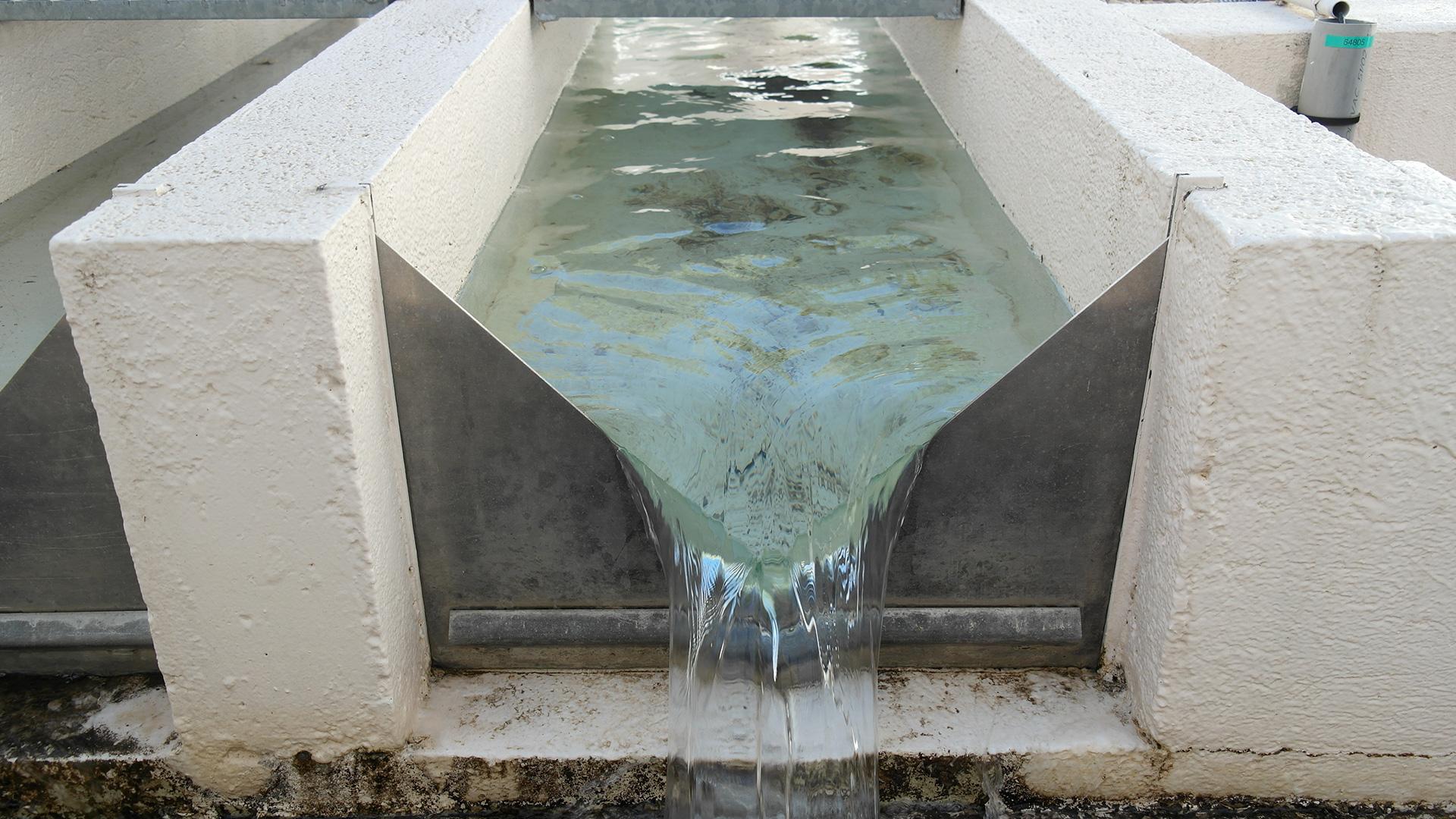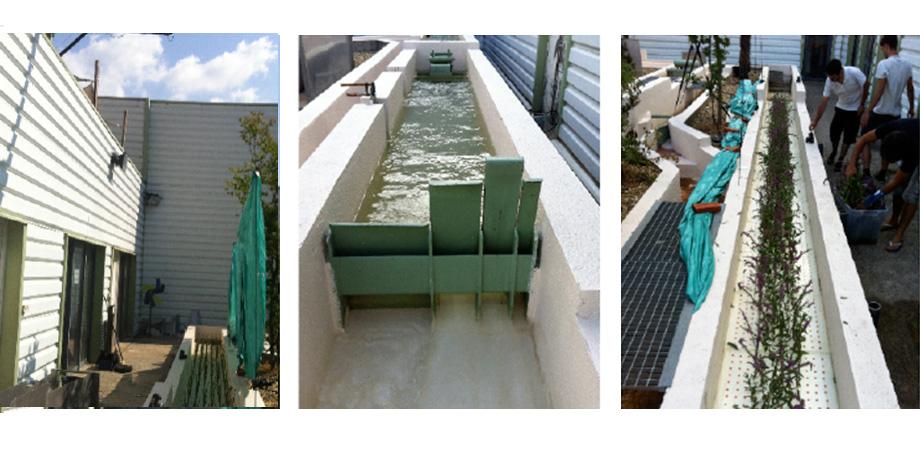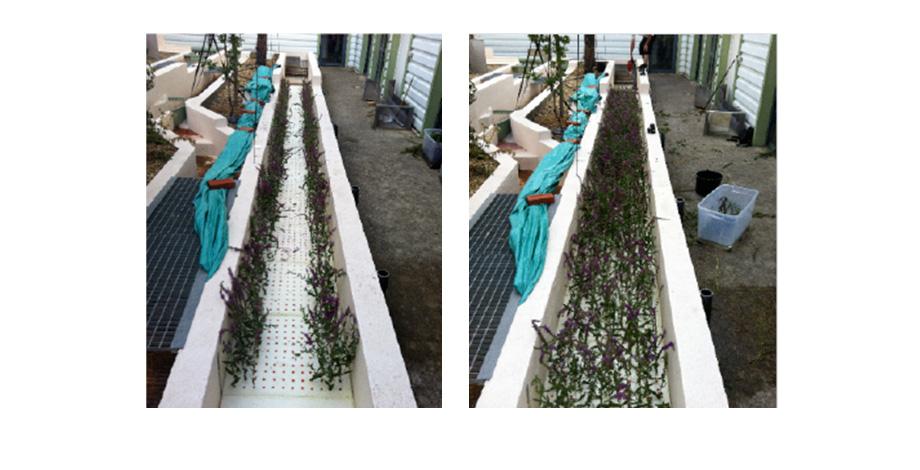A state-of-the-art tool for studying microscopic water flows (velocity fields, construction laws) on a macroscopic scale (regulation, water resource management).
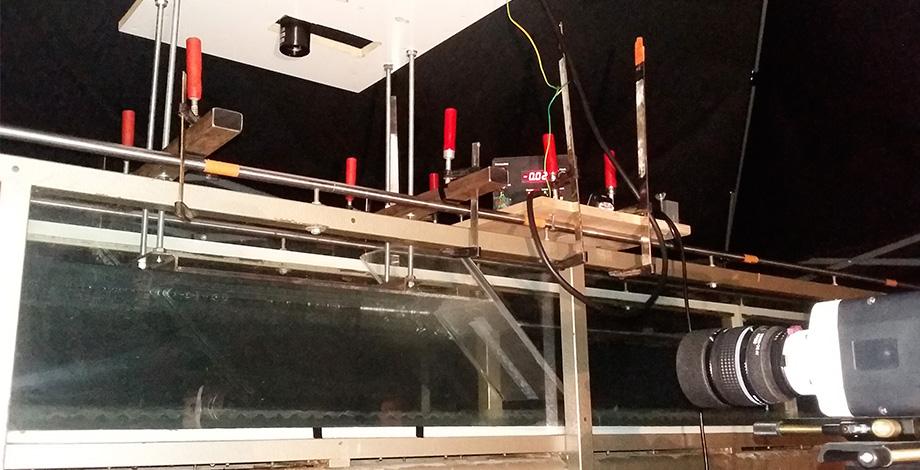
The L'Institut Agro Montpellier Hydraulic Hall is an experimental facility at the Montpellier Institute of Water and Environment (IM2E). It brings together four Montpellier-based joint research units (G-EAU, LISAH, Hydrosciences, ITAP) specializing in hydrology and free surface hydraulics around hydraulic installations and advanced measuring equipment. The most notable include:
An outdoor hydraulic canal
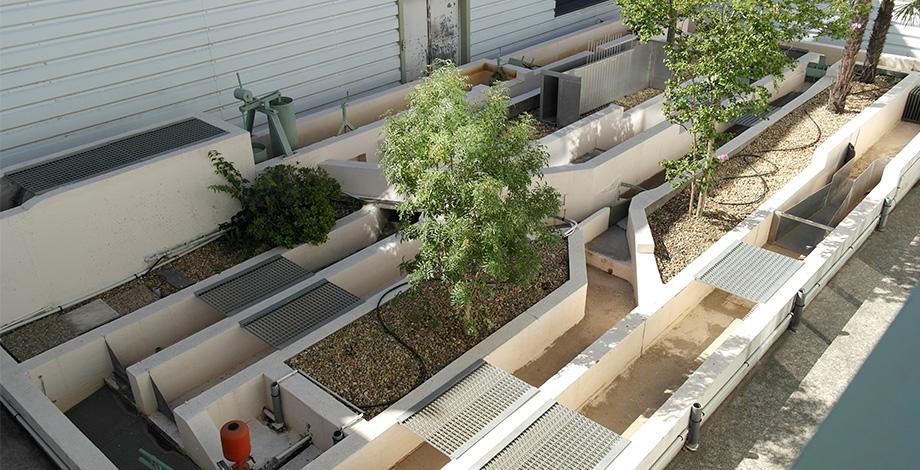
Unique in Europe, this canal is an actual scale model of a hydraulic network. It has 4 independent branches, which offers unique opportunities and laboratory conditions to work on aspects of regulation. It is also equipped with a series of control works that are widely available on the market.
A large canal and an independent canal
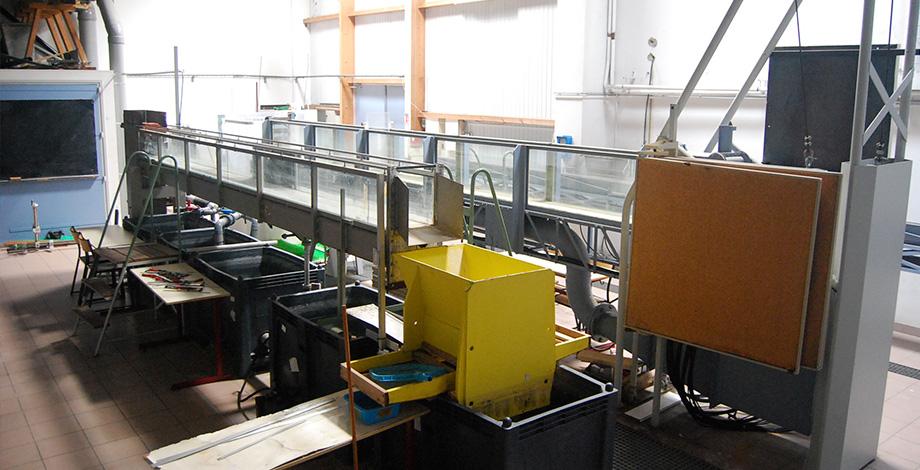
This facility consists of two straight channels approximately eight meters long. They are glazed, with varying slopes, and enable the study of unidimensional complex flows. These facilities allow the use of state-of-the-art laser imaging tools (e.g., Particle Image Velocity/Particle Tracking Velocity – PIV/PTV or Planar Laser Induced Fluorescence - PLIF) to precisely characterize the flow and transport of pollutants.
A cutting-edge tool for research: from theory to practice
Research using scale models of hydraulic works has enabled generic laws to be established that can be applied to real systems and integrated in simulation software. Other studies have focused on the influence of vegetation on channel flows. The facilities render it possible to conduct numerous research studies, ensuring the transition from theory to practice.
These facilities have resulted in a patent (complex flow mapping) and an international award.
Currently, a major investment project, financed by the Occitanie Region, the Montpellier Metropolis and the trustees of the hydraulic hall, aims to strengthen the experimental capacities of the hall. The funding should cover the installation and acquisition of:
- A new hydraulic canal, fully glazed and wider to avoid edge effects
- A state-of-the-art imaging system (PIV/PTV, PLIF)
- A monitoring system for automatic and real-time regulation
- Measuring and other equipment (hydraulic works, hydraulic and water quality sensors, solar power system, etc.)
An innovative platform for students
The hall also is used to train students enrolled in the main water programmes in Montpellier.
Nearly 500 students use the various facilities over the course of the year.
At L'Institut Agro Montpellier , engineering students in the Agricultural Engineering and the Sustainable Agricultural and Food Systems for the South programmes use the facilities early in their studies to better understand concepts of fluid mechanics. Students in the Biodiversity, watEr, Soil, climaTe, Evaluation option, in M.Sc Water Sciences program and in AgroParisTech’s M.Sc program have the opportunity to use the facilities more fully during their training.
Students may use all of the facilities and equipment. More or less complex experiments are set up to lead students, depending on where they are in their programmes, to:
- demonstrate theoretical laws
- validate empirical laws
- initiate themselves into the issues of water use and regulation
- acquire practical know-how by using tools commonplace in the water sector.
Students are exposed to all aspects of hydraulics through practical exercises:
- hydrostatic laws
- closed conduit flows
- open channel flows
- pump operating modes
- flows in porous environments
Place
L'Institut Agro Montpellier
Campus de La Gaillarde
2 place Pierre Viala
Montpellier
Contacts
Related websites
L'Institut Agro Montpellier
2 place Pierre Viala
34060 Montpellier - France
Tél. : +33 (0)4 99 61 22 00 Tél. : +33 (0)4 99 61 22 00
Fax : +33 (0)4 99 61 29 00
contact@supagro.fr

